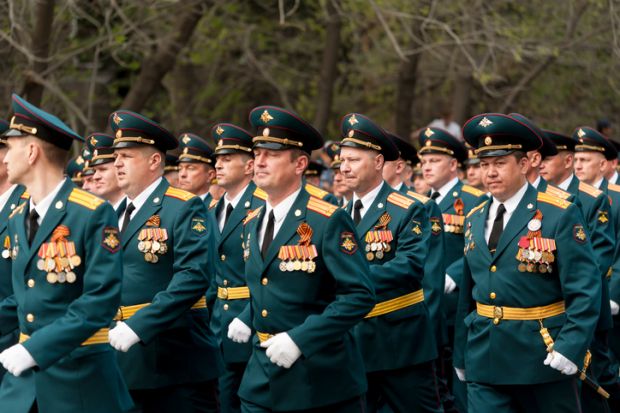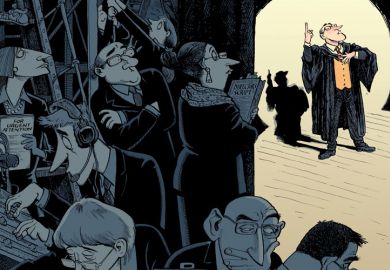Professional staff ranks in Australian universities have been turned upside down in the space of two decades, with foot soldiers replaced en masse by sergeants and generals.
A study has found that 70 per cent of support workers’ positions disappeared between 1997 and 2017, reducing their share of professional staff from almost one in two to about one in seven. Meanwhile, the ranks of middle and senior management more than doubled from one in eight to over one in four.
The proportion of people in “regular” professional roles – such as senior librarians, technical supervisors and project officers – increased more sedately to constitute almost six out of every 10 general staff members.
The paper, based on unpublished university data reported to the federal education department, is under review by the journal Studies in Higher Education. It busts a myth that non-academic staff are taking over universities. Their share of the workforce has barely changed, remaining at about 55 per cent across the sector.
But this stability masks an “astonishing” growth in middle and senior management positions. “It’s a consistent trend across universities of all different sizes, shapes, ages, focuses and research intensities,” said co-author Gwilym Croucher, of the Melbourne Centre for the Study of Higher Education.
The findings explain why professional staff have progressively consumed a larger proportion of university budgets over the past 20 years. But Dr Croucher cautioned against an assumption that universities were becoming less efficient as they replaced ordinary workers with managers.
He said many highly paid professional recruits did not necessarily have staff management responsibilities. Some were “third space” professionals such as learning designers – roles that did not exist in the 1990s.
“But we can’t get around the fact that there is a much higher proportion of senior people in the non-academic ranks, and it’s costing more. There are real questions about whether there has been growth for legitimate reasons or this just accreted over time.”
Co-author Peter Woelert said the findings also helped to explain academics’ complaints about expanding administrative workloads. But while automation and technological change had eliminated the need for support staff who performed functions such as data entry, other roles may still be retained under different employment arrangements.
Dr Woelert said roles such as maintenance and cleaning had increasingly been outsourced, some jobs had been reclassified and lab technicians may have moved to casual contracts. Such details were difficult to determine from the data.
It is also difficult to say whether the senior executive category has expanded for functional or “cultural” reasons. Dr Woelert said that while any explanation was speculative, the similar trajectories among different types of universities suggested the latter.
“It may be [that] people think they have to behave in certain ways to be seen as proper universities,” he said. “Maybe they’re just copying each other and building empires. Sometimes you build legitimacy or get promoted by building big teams.”
The paper says that while university sectors elsewhere – notably the US, Norway and Germany – have gravitated to more highly qualified professional workforces, the growth in management-ranked positions at Australian universities has been “pronounced”.
Dr Woelert said it was no surprise that universities had started “mimicking what a regular corporate player looks like” when policy and funding levers encouraged such behaviour. “If you want universities to be strategic and attract clients, of course they’re going to spend a lot of money on marketing,” he said.
Dr Croucher said an increasing emphasis on performance-based accountability had also spurred growth in managerial ranks. “It requires people to manage those processes and work with governments, and it cultivates an internal culture of compliance checking. It comes from a good place sometimes, because people want to be transparent, but it also comes at a cost.”
POSTSCRIPT:
Print headline: Foot soldiers fall out as managers march ahead in professional ranks
Register to continue
Why register?
- Registration is free and only takes a moment
- Once registered, you can read 3 articles a month
- Sign up for our newsletter
Subscribe
Or subscribe for unlimited access to:
- Unlimited access to news, views, insights & reviews
- Digital editions
- Digital access to THE’s university and college rankings analysis
Already registered or a current subscriber?




